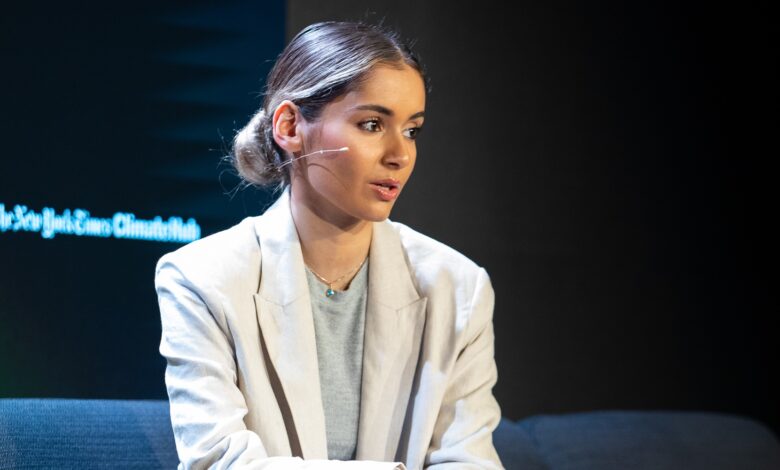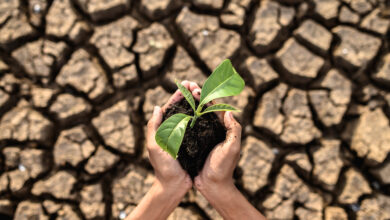How One Company Runs Climate Information Translation Driven by AI

The story of how one AI tool designed by Google helped a group of young volunteers spread global climate literacy in more than 100 languages.
The world is facing the devastating effects of climate change. In this scenario, Sophia Kianni, a social entrepreneur established Climate Cardinals during the pandemic with the goal of enhancing global climate knowledge. She is a student of science, technology, and society at Stanford University. Through her efforts, she has successfully assembled a group of 9,000 young volunteers from various countries who dedicate their time to translating climate information into over 100 languages, such as Swahili, Hebrew, Urdu, Mandarin, and Hindi.
Since 2020, volunteers have accomplished the translation of half a million words. To guarantee the credibility and accuracy of these translations, they collaborate with professional networks like Respond Crisis Translation and Translators Without Borders for thorough editing and proofreading.
Collaboration with Google
Through the implementation of Google Cloud’s advanced AI-powered Translation Hub platform, The Climate Cardinals successfully translated over 800,000 words into over 40 different languages. She stated, “In just three months of partnering with Translation Hub, we’ve accomplished the same amount of work that previously took us two years.” Translation Hub utilizes AI to automatically translate documents, which are then refined and enhanced by human translators. Remarkably, the platform is capable of processing PDFs with design elements and returns translated documents that retain the original layout.
As an illustration, they undertook the translation of approximately 100,000 words of climate-related information into Spanish for Yale Climate Connections. This initiative aimed to expand their outreach within the Latinx communities in the United States. Additionally, they provided translation services for numerous global organizations, rendering their documents into over 20 languages.
The barrier of language
The predominant language for international scientific communication is English, with approximately 80% of scientific papers being written in this language. However, a study conducted in 2012 revealed that languages continue to pose a significant obstacle to the worldwide dissemination of scientific knowledge. Only 18% of the global population speaks English as either a native or second language, emphasizing the language barrier that exists in scientific communication on a global scale. However, she explained language shouldn’t be a barrier to climate action.
How she started her journey
Kianni, who was introduced to the climate crisis in her sixth grade, firmly believes in the transformative power of education. Upon discovering that temperatures in the Middle East were escalating at a rate exceeding twice the global average, she took the initiative to verbally translate climate information into Farsi which is Iran’s native language. Her aim was to enlighten her Iranian relatives who had previously been oblivious to the severity of the climate emergency. As a result, her relatives developed pro-environmental mindsets and actively rallied behind environmental advocates in Iran, who had faced persecution for their courageous stance against the government.
Education as an empowerment tool
Kianni, the youngest-ever adviser to the UN secretary general’s youth advisory group on climate change, emphasizes the importance of providing resources to those most severely affected by the climate crisis. She asserts that individuals in these communities deserve access to the necessary tools and information that can help them comprehend the disasters afflicting their surroundings. By empowering them with knowledge, they can effectively raise their voices and contribute to a collective movement demanding action on climate change.
Africa, despite its minimal contribution to the climate crisis, finds itself at the forefront of its detrimental effects. This imbalance underscores the fact that people of color bear a disproportionate burden in the face of this global challenge. Furthermore, an overwhelming 80% of climate refugees are women, emphasizing that the issue at hand is undeniably a matter of social justice in its entirety.
Conclusion
Kianni further expressed that while the issue of climate translation remains unresolved, the collaboration with Google has established a concrete system for delivering a remarkable volume of translations to nearly all of their partners. Climate Cardinals’ young members are actively engaged in organizing, formatting, and delivering these automated translations. According to Kianni, the subsequent phase involves empowering individuals and ensuring they comprehend how they can contribute to being part of the solution.
With its pioneering climate action platform, The Disposal Company is leading the charge towards a sustainable future in India, enabling brands to go plastic-neutral and carbon-neutral with ease. Discover more here.




